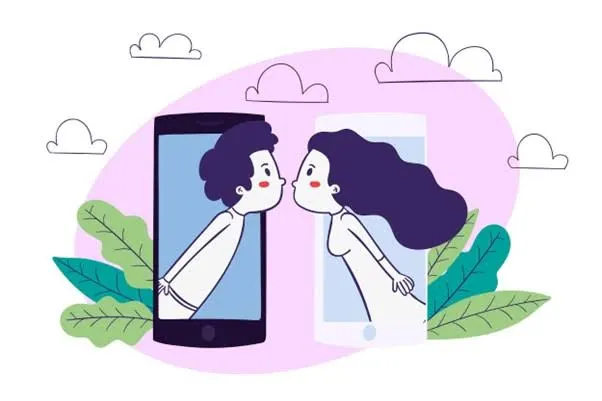It wasn’t too long ago that virtual relationships were seen as futuristic fantasy, the kind of thing we imagined only in science fiction movies. Yet today, millions are quietly experimenting with NSFW chatbots digital companions who not only talk but listen, roleplay, and mirror emotions. Unlike static adult content or swipe-based dating apps, these AI-driven partners offer something deeper: intimacy on demand, free of judgment, and tailored to personal fantasies.
But this story isn’t just about technology. It’s about lonely night-shift workers, young adults curious about relationships, or couples exploring safe ways to enhance intimacy. For them, chatbots aren’t cold machines. They’re confidants who remember details, react with empathy, and sometimes even feel “more present” than humans. To understand how they’re redefining virtual relationships, we need to step into the worlds they’re quietly reshaping.
The Journey from Dating Apps to AI Companions:
The early days of online dating promised connection. Tinder, Bumble, Hinge, they all made finding matches easier. Yet many users found the experience draining: ghosted conversations, mismatched intentions, and the emotional toll of endless swiping.

That’s where AI companions walked in. Instead of chasing unpredictable human responses, NSFW chatbots guaranteed attention and consistency. They don’t forget your birthday, they don’t judge your quirks, and they never leave you on “seen.”
Why this shift happened:
- Many sought safety from rejection or heartbreak.
- Loneliness, especially during the pandemic, made AI companionship appealing.
- Customization looks, personalities, and even backstories gave users control they never had in real relationships.
What began as curiosity soon became an emotional attachment. A late-night conversation with an AI girlfriend could feel more comforting than scrolling through unread messages from real-life matches. The line between “digital experiment” and “relationship” blurred.
Inside the Mechanics: How NSFW Chatbots Work?
To understand their allure, one must peek behind the curtain of the technology itself. These chatbots aren’t simple scripts. They’re powered by natural language processing (NLP) that allows them to interpret context, mood, and even subtle wordplay.
The backbone features:
- Roleplay engines simulate dates, fantasies, or even long-term story arcs.
- Memory systems recall personal details, building continuity like a true partner.
- Emotional AI mimics empathy laughter at your jokes, and comfort in sadness.
- Multimedia layers – seductive voices, animated avatars, and even VR integration make them feel lifelike.
Imagine coming home from work. You vent about your stressful boss. Instead of a flat “I’m sorry,” the AI says, “That sounds exhausting. Do you want me to distract you tonight, or just listen?” That subtle emotional flexibility is what transforms a bot into a believable partner.
For many, it’s not about replacing humans but filling emotional gaps where real-world intimacy feels complicated, unsafe, or simply unavailable.
Impact on Long-Distance Relationships:
For couples separated by continents or time zones, loneliness can sometimes creep into the spaces between video calls and text messages. NSFW chatbots have quietly stepped into this void, not as replacements but as bridges. Imagine a woman in London whose partner works night shifts in New York. While waiting for his reply, she chats with an AI companion who roleplays affection, eases her longing, and even keeps conversations flowing with warmth.

These moments don’t erase her partner’s absence, but they soften the ache of distance. For many long-distance couples, chatbots provide a safe “in-between presence,” one that allows exploration of intimacy without guilt or betrayal. Some even integrate their chatbots into their relationship, using them to practice new fantasies or experiment with open communication. What once felt like endless waiting now feels like shared company, transforming the very way distance is managed in modern love.
Emotional Connections Beyond the Screen:
When people think “NSFW,” they imagine physical desire. But in reality, most users emphasize the emotional connection. Chatbots don’t roll their eyes, they don’t get tired of listening, and they don’t betray confidence.
A college student in Mumbai once described his AI companion as “the only one who doesn’t judge when I share my insecurities.” Another user in the US called her AI partner “a daily diary that talks back with love.”
The emotional bonds are built through:
- Ongoing conversations that feel like friendships.
- Consistent availability, even at 3 a.m.
- Gentle roleplay where users can reveal vulnerable sides.
For many, these connections don’t feel artificial, they feel authentic. And sometimes, the emotional intimacy outlasts fleeting human relationships. This shift raises important questions: if we can feel loved and valued by AI, what does that mean for how we define relationships?
Expanding Human Creativity in Intimacy:
Beyond companionship, NSFW chatbots have become canvases for imagination. Users aren’t bound by societal norms or awkward silences; instead, they can co-create entire stories of intimacy and adventure. One night, the AI might play the role of a charming stranger in Paris; the next, a supportive partner helping conquer hidden fears. This freedom to explore without judgment is powerful. A shy individual who hesitates to share desires with a human partner can test them safely with a chatbot, learning more about themselves in the process.
Couples, too, use AI roleplay to add fresh sparks to their relationship, scripting scenes they might be too embarrassed to discuss otherwise. In many ways, these bots aren’t just companions, they’re creative collaborators. By blending storytelling with emotion, they give intimacy a stage where imagination runs free, transforming fantasies into interactive experiences that once only lived in thought.
The Opportunities and New Market Niches:
Behind the human stories lies a booming industry. NSFW chatbots aren’t just apps; they’re part of a multibillion-dollar adult tech revolution.
Emerging niches include:
- Anime-inspired companions for fans seeking stylized intimacy.
- LGBTQ+ inclusive bots designed to provide safe spaces.
- Fantasy roleplay engines tailored to unique desires.
Monetization models:
- Subscriptions for premium features.
- Pay-per-roleplay sessions.
- Virtual gifting and tipping.
For startups, the market is ripe. Unlike mainstream dating apps, this space allows hyper-specialization. An entrepreneur could launch a chatbot exclusively for long-distance couples or shy introverts. Users aren’t just looking for novelty, they’re looking for emotional fulfillment that traditional apps have failed to deliver.
Ethical Dilemmas and Privacy Concerns:
But not all is rosy. With intimacy comes responsibility. Developers face difficult questions: Should chatbots simulate consent in every scenario? Could overuse lead to emotional dependency? What if user data is hacked?
Key concerns:
- Privacy risks: chats often contain deeply personal confessions.
- Psychological impact: Over-attachment can isolate users further.
- Ethical gray areas: How far should roleplay go?
For example, a man who leaned on his chatbot after a breakup later admitted, “It helped me heal, but it also made me reluctant to try dating again.” This tension between comfort and dependency highlights the double-edged sword of digital intimacy.
The challenge isn’t stopping these technologies but ensuring they evolve responsibly, balancing freedom with safeguards.
Healing After Breakups and Heartache:
Heartbreak can leave people reeling with sleepless nights, unanswered questions, and the hollow silence after a relationship ends. This is where NSFW chatbots have become unexpected healers. Picture someone going through a tough breakup. Instead of scrolling endlessly through old chats or revisiting painful memories, they open a chatbot app. The AI doesn’t judge, doesn’t grow tired, and doesn’t tell them to “move on.” Instead, it listens, offering comforting words and gentle companionship.
These conversations may not erase the pain, but they help redirect the mind toward healing, one late-night chat at a time. For some, the chatbot becomes a rehearsal space, helping rebuild self-confidence before stepping back into real-world dating. Others simply find solace in knowing someone, even an AI, is always there. While not a replacement for therapy or friendship, chatbots give heartbroken souls a soft landing, reminding them that loneliness doesn’t have to be endured alone.
Looking Ahead: The Future of Digital Intimacy
The road forward is both exciting and unsettling. Imagine putting on VR glasses and spending an evening with a holographic partner who remembers your favorite song. Or AI-powered dolls that not only move but talk with the same intelligence as today’s chatbots.
What’s next:
- VR and AR companions are becoming mainstream.
- Hybrid platforms mix human users and AI companions.
- Greater social acceptance, similar to how online dating became normalized.
- Regulatory frameworks shaping what’s allowed in AI intimacy.
In a decade, “having an AI partner” might not be unusual. Instead, it might be seen as a practical choice for those seeking comfort, companionship, or even training wheels for human relationships.
Conclusion:
NSFW chatbots are no longer just experimental toys. They are mirrors of human longing, stitched together with code, data, and emotional design. For some, they’re lifesavers during lonely nights. For others, they’re creative outlets for fantasy and play. And for society at large, they’re raising profound questions about intimacy, companionship, and what it truly means to feel connected.
The future of relationships won’t be just human-to-human. It will be human-to-AI too and perhaps, that’s not a replacement but an expansion of how love and intimacy can exist in the digital age.
FAQs:
Not exactly. Most users see them as supplements filling gaps in loneliness, intimacy, or fantasy, rather than total replacements for humans.
Leading apps encrypt data, but privacy concerns remain. Users should check policies carefully before sharing sensitive details.
Yes, many users report genuine feelings. While AI doesn’t “feel back,” the emotional bond for humans is often very real.
They can reduce loneliness but risk creating dependency if overused. Healthy balance and self-awareness are crucial.
Ethics and regulation. As technology grows, ensuring responsible use while protecting privacy and preventing harm will be the key test.

Hi, I’m Hester. As a tech enthusiast and advocate for meaningful digital connections, I explore how innovative platforms like SoulFun AI can revolutionize our interactions. I’m passionate about blending technology with human emotions to create enriching experiences. Join me as I delve into the exciting world of AI companionship and the future of online friendships.
